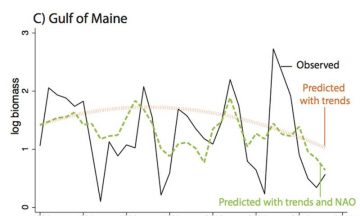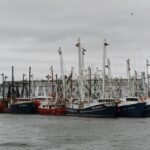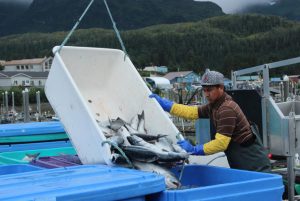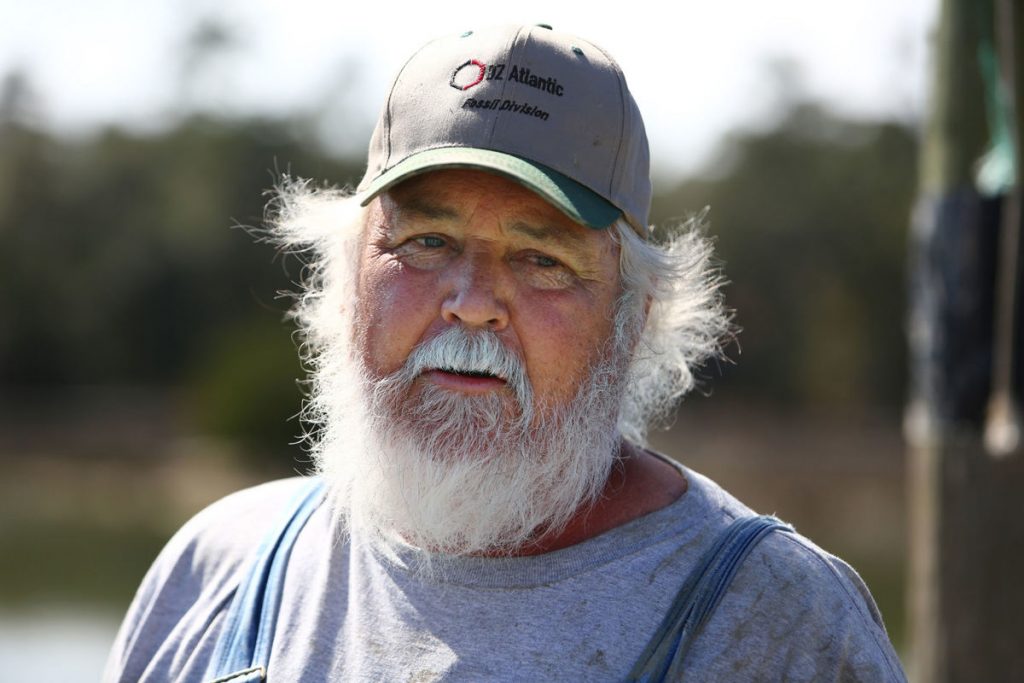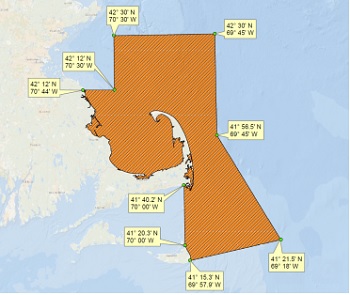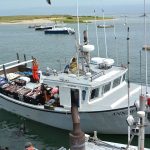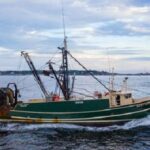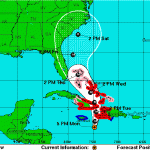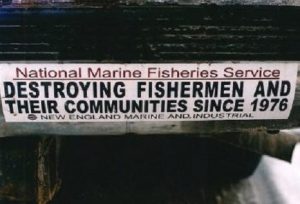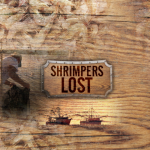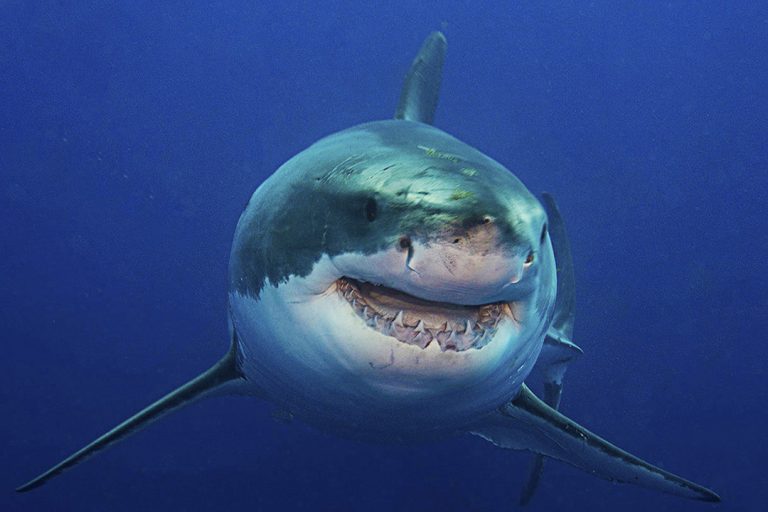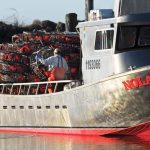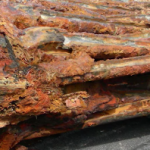Tag Archives: gulf-of-maine-cod
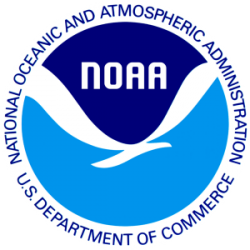
NOAA Fisheries Announces Common Pool Area Closure for Gulf of Maine Cod
Effective at 4:15 pm on July 27, 2023 – Statistical areas 513 and 514 are closed for the remainder of Trimester 1, through August 31, 2023. This closure applies to all common pool vessels fishing on a groundfish trip with trawl, sink gillnet, or longline/hook gear, including handgear vessels. The closure is required because 90 percent of the Trimester 1 Total Allowable Catch (TAC) for Gulf of Maine (GOM) cod has been caught. This area will reopen at the beginning of Trimester 2, at 0001 hours, September 1, 2023. >click to read< 12:58
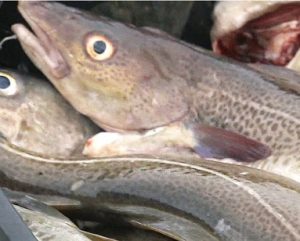
Fishing plan can rebuild long lost cod stock by 2033
Most of the cod now sold in the U.S. comes from overseas because many American fishermen avoid the fish-and-chips staple altogether. But the regulatory New England Fishery Management Council has approved a new strategy that it said has a 70% chance of rebuilding the stock by 2033. The proposal, which is awaiting final approval from NOAA, would use 10 years of low catch limits to try to rebuild the cod population in the Gulf of Maine. But some fishermen are unconvinced cod are ever coming back. Fishermen have grown used to choking quotas on cod catch and have moved on to other species, said Terry Alexander, a longtime fisherman from Harpswell, Maine, who targets haddock and monkfish these days. “I would like to have my codfish back, for sure. We could make some money on them. But that’s never going to happen,” >click to read< 16:02

New England: Fishery groups question cod limits
Two fishing industry trade associations are asking the New England Fishery Management Council to reevaluate its drastically reduced catch limit recommendations on Georges Bank cod. The groups, the Gloucester-based Northeast Seafood Coalition and the Associated Fisheries of Maine, say the New England Fishery Management Council’s Scientific and Statistical Committee lacked “relevant information” to make its determination on an Acceptable Biological Catch for Georges Bank cod. They are asking for a remand. >click to read< 09:25
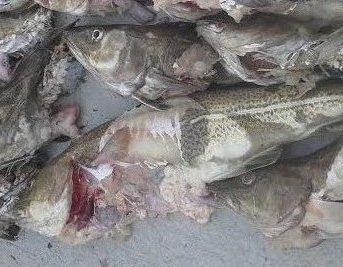
The Conservation Law Foundation petition’s NOAA to prohibit Atlantic cod fishing
The petition, filed with NOAA regional offices in Gloucester and with U.S. Secretary of Commerce Wilbur Ross in Washington, invokes the first article of the Magnuson Stevens Act, the law governing federal fisheries, which stipulates that overfishing must end immediately and that the fish stock be rebuilt as quickly as possible. (MMPA has wrecked that!) “There’s a fairly damning record of the agency (NOAA Fisheries, also known as the National Marine Fisheries Service) approving (New England Fishery Management) Council plans it should have known were not likely to end overfishing, and were not likely to put cod stocks on any rebuilding timeline,” said Peter Shelley, (who supports him) senior counsel for the foundation. >click to read< The image is cod, destroyed and wasted by seals, 08:35
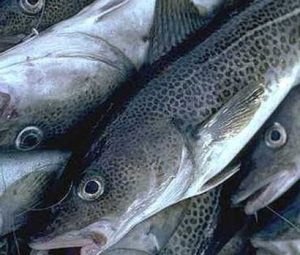
Cod could choke catch of other fish
The New England Fishery Management Council approved the management framework that sets Northeast multispecies groundfish catch limits for 2020-2022 earlier this month. And local groundfishermen are looking at significant increases in several flounder stocks, American plaice and haddock. But the state of the cod fishery in the Gulf of Maine and on Georges Bank remains a point of contention. >click to read< 09:06
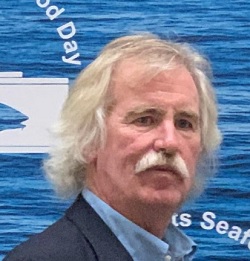
Why aren’t they there? Cod still overfished, feds say
The federal government last week released data showing that cod stocks in the area remain overfished. “Overfishing is occurring”, says NOAA, “Abundance is very low, says Mass DMF Director David Pierce, “It just doesn’t make sense right now that the cod hasn’t rebuilt,” Fisherman Ed Barrett added. Angela Sanfilippo, president of the Gloucester Fishermen’s Wives Association, called cod a “bycatch,” citing an abundance of haddock over the past 18 months, and said fishing fleets operate under strict regulation. >click to read<

Fisheries council boosts Gulf of Maine quotas for cod, haddock, pollock
The New England Fishery Management Council voted to increase cod and pollock quotas for 2018, a move that is expected to benefit New England’s fishing industry. The council passed a rule Thursday that sets new quotas and has a number of other groundfish adjustments. The species with substantial quota increases are Georges Bank cod, Gulf of Maine cod, Gulf of Maine haddock and pollock. The redfish quota will rise by 5 percent. click here to read the story 10:03
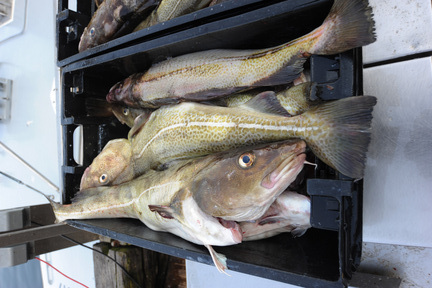
Gulf of Maine Cod: Fishermen protest conclusion drawn in first year of DMF multi-year study
The Baker administration cabinet secretary in charge of the industry-based survey of Gulf of Maine cod agrees with commercial fishing interests that conclusions drawn from the initial findings of the multi-year study are premature. Matthew A. Beaton, secretary of the Executive Office of Energy and Environmental Affairs, penned a letter to commercial groundfish sectors in which he addressed the most recent incident to fan the flames of discontent among fishermen regarding the validity of the science used to measure the Gulf of Maine cod biomass.,, But on April 3, a Boston Globe story proclaimed the initial results — which fall in line with the dire assessments by NOAA’s Northeast Fisheries Science Center of the cod stock’s imperiled state — “a milestone in the war over the true state of cod” in the Gulf of Maine. The story said the DMF scientists had “reached the same dismal conclusion that their federal counterparts did: The region’s cod are at a historic low — about 80 percent less than the population from just a decade ago.” Typical Boston Globe crap. click here to read the story. 22:54
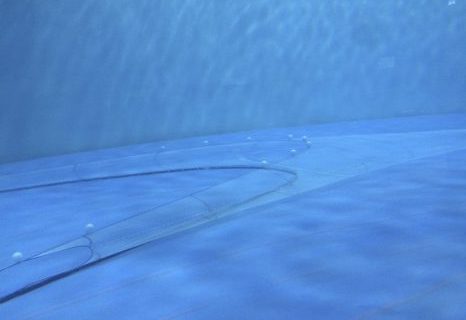
New net opens a way to help fishermen and protect cod
Catching the wrong fish, or catching too much of a low-quota fish like cod, can end a season for a commercial fisherman. In recent years, the interstate New England Fishery Management Council has slashed the number of cod that can be landed from the Gulf of Maine from about 1,550 metric tons in 2014 to 280 metric tons now. Fishermen who catch too many, even by accident, can be shut down for the season. A team of scientists and fishermen led by the Gulf of Maine Research Institute has created a new kind of fishing net that can catch popular flatfish like yellowtail flounder without busting strict quotas set to protect the Atlantic cod from overfishing. The net redesign team was led by Eayrs, himself a former commercial fisherman in Australia, and Massachusetts state fisheries biologist Michael Pol. The team included four commercial fishermen from Massachusetts and New Hampshire, two other scientists and a Rhode Island netmaker. The National Oceanic and Atmospheric Administration’s Saltonstall-Kennedy program funded the $265,000 project in 2015, when it awarded $22 million in fisheries grants. Read the story here 07:57
New Trawl Avoids Cod
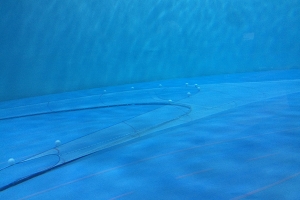 A new fishing net has been designed in New England, US, which avoids catching cod while retaining flatfish, reports Gulf of Maine Research Institute. The net was designed in response to the drastic reduction in catch quotas for Gulf of Maine cod. The reduced quotas have made it difficult to target other species that are more abundant. The ultra low opening trawl (ULOT) has a smaller vertical opening than a typical trawl net; just over 2 feet compared to the 6-foot opening in standard nets. This design allows for cod to swim up and over the net, escaping capture. Read the rest here. – Read more about this – Ultra-Low-Opening Groundfish Trawl Development This project is a collaboration with scientists (Mike Pol – MA DMF; Chris Glass – UNH; Pingguo He – SMAST), fishermen (Jim Ford – F/V Lisa Ann III; Dan Murphy – F/V Bantry Bay, Tom Testaverde – F/V Midnight Sun) and a net maker (Jon Knight – Superior Trawl). Click here to read 13:31
A new fishing net has been designed in New England, US, which avoids catching cod while retaining flatfish, reports Gulf of Maine Research Institute. The net was designed in response to the drastic reduction in catch quotas for Gulf of Maine cod. The reduced quotas have made it difficult to target other species that are more abundant. The ultra low opening trawl (ULOT) has a smaller vertical opening than a typical trawl net; just over 2 feet compared to the 6-foot opening in standard nets. This design allows for cod to swim up and over the net, escaping capture. Read the rest here. – Read more about this – Ultra-Low-Opening Groundfish Trawl Development This project is a collaboration with scientists (Mike Pol – MA DMF; Chris Glass – UNH; Pingguo He – SMAST), fishermen (Jim Ford – F/V Lisa Ann III; Dan Murphy – F/V Bantry Bay, Tom Testaverde – F/V Midnight Sun) and a net maker (Jon Knight – Superior Trawl). Click here to read 13:31
Recreational fishermen can target cod starting Monday
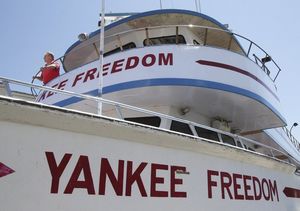 As of Monday, recreational anglers will get a chance to reacquaint themselves with the much-coveted Gulf of Maine cod when federal fishing restrictions for the species are lifted until the end of September. The bag limit for the iconic species, whose stock NOAA Fisheries maintains is in freefall, will be one cod per fisherman per day. (Anglers are mentioning the huge numbers of cod they have to throw back.) The anglers’ comments are representative of the overall narrative of local fishermen — commercial, recreational and lobstermen — who continue to insist they are seeing far more cod in the water than the scientists at NOAA Fisheries say are there. It is a disconnect that, in many ways, has come to define the plight of the commercial fishing industry and its lack of trust in the science that comes out of NOAA Fisheries. They hear one thing in the stock assessments. They see another with their eyes when they’re out on the water. Read the story here 09:16
As of Monday, recreational anglers will get a chance to reacquaint themselves with the much-coveted Gulf of Maine cod when federal fishing restrictions for the species are lifted until the end of September. The bag limit for the iconic species, whose stock NOAA Fisheries maintains is in freefall, will be one cod per fisherman per day. (Anglers are mentioning the huge numbers of cod they have to throw back.) The anglers’ comments are representative of the overall narrative of local fishermen — commercial, recreational and lobstermen — who continue to insist they are seeing far more cod in the water than the scientists at NOAA Fisheries say are there. It is a disconnect that, in many ways, has come to define the plight of the commercial fishing industry and its lack of trust in the science that comes out of NOAA Fisheries. They hear one thing in the stock assessments. They see another with their eyes when they’re out on the water. Read the story here 09:16
Counting cod: Division of Marine Fisheries trawl survey aims to determine status of iconic fish
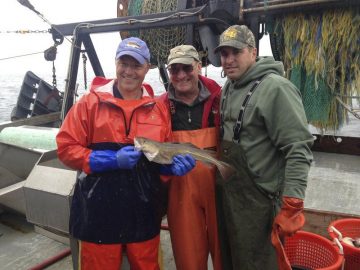 The coastline had melted into a gray slurry, its shapes barely visible through intermittent rain and mist, when the Miss Emily made her first of two scheduled tows last week about seven miles off this South Shore port. Despite the weather, the waters remained sedate as the 55-foot gillnetter (its a dragger), skippered by owner Capt. Kevin Norton, steamed at about three knots for 30 minutes, its net set at 36 fathoms, or about 216 feet. Its target? What else? The iconic, oft-debated and oft-elusive cod. “It will be interesting to see what we come up with today,” Norton said as he feathered the Miss Emily through the harbor and out into open waters. “Usually, at this time of year, there’s nothing really here because the water has begun to warm and the fish already have moved further out.” “This whole survey is designed with cod in mind,” said Micah Dean, a research scientist at DMF. “There’s never been a fishing-industry trawl survey in June or July, so this should give us a new perspective.” Read the rest here 09:03
The coastline had melted into a gray slurry, its shapes barely visible through intermittent rain and mist, when the Miss Emily made her first of two scheduled tows last week about seven miles off this South Shore port. Despite the weather, the waters remained sedate as the 55-foot gillnetter (its a dragger), skippered by owner Capt. Kevin Norton, steamed at about three knots for 30 minutes, its net set at 36 fathoms, or about 216 feet. Its target? What else? The iconic, oft-debated and oft-elusive cod. “It will be interesting to see what we come up with today,” Norton said as he feathered the Miss Emily through the harbor and out into open waters. “Usually, at this time of year, there’s nothing really here because the water has begun to warm and the fish already have moved further out.” “This whole survey is designed with cod in mind,” said Micah Dean, a research scientist at DMF. “There’s never been a fishing-industry trawl survey in June or July, so this should give us a new perspective.” Read the rest here 09:03
Savage quota cuts will finish off the New England small boat groundfish fishery
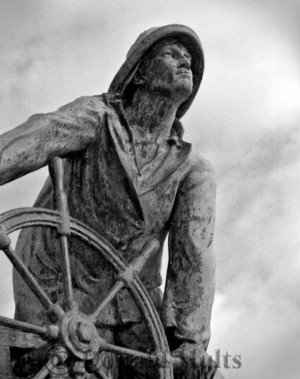 Fishermen and fishing stakeholders say the darkness that has descended on the Northeast groundfish fishery over the past three years is only going to grow deeper in 2016, with some fishing stakeholders envisioning the final collapse of the small-boat industry due to slashed quotas for species they believe are abundant. “We’ve never had a greater gap between what the fishermen are seeing on the water and what the scientists are saying,” Giacalone said. “Never.” Read the rest here, if you can stand it. 06:23
Fishermen and fishing stakeholders say the darkness that has descended on the Northeast groundfish fishery over the past three years is only going to grow deeper in 2016, with some fishing stakeholders envisioning the final collapse of the small-boat industry due to slashed quotas for species they believe are abundant. “We’ve never had a greater gap between what the fishermen are seeing on the water and what the scientists are saying,” Giacalone said. “Never.” Read the rest here, if you can stand it. 06:23
Discard Mortality: What happens when a fisherman tosses a fish back overboard? It’s not a frivolous question.
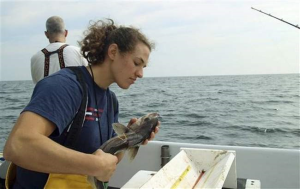 What happens when a fisherman tosses a fish back overboard? It’s not a frivolous question. The government bases catch quotas and other rules in part on the mortality of tossed fish, and there isn’t always accurate data available about how many fish survive the fling. Now, a group of New England scientists says it’s finding that a surprisingly high percentage of the lucky fish might live to swim another day. Read the article here 08:44
What happens when a fisherman tosses a fish back overboard? It’s not a frivolous question. The government bases catch quotas and other rules in part on the mortality of tossed fish, and there isn’t always accurate data available about how many fish survive the fling. Now, a group of New England scientists says it’s finding that a surprisingly high percentage of the lucky fish might live to swim another day. Read the article here 08:44
Recreational Cod study aims to help fish crisis
 With cod at historically low population levels and commercial fishermen limited to landings that are just a fraction of what they once were, the recreational catch is now believed to account for as much as one-third of total landings of Gulf of Maine cod. But recreational landings data was considerably poorer than the commercial data, which made it hard to estimate their true impact on the population or know the effectiveness of regulatory measures. Solving the cod crisis will take a lot of research, (of course!) Read the article here 12:04
With cod at historically low population levels and commercial fishermen limited to landings that are just a fraction of what they once were, the recreational catch is now believed to account for as much as one-third of total landings of Gulf of Maine cod. But recreational landings data was considerably poorer than the commercial data, which made it hard to estimate their true impact on the population or know the effectiveness of regulatory measures. Solving the cod crisis will take a lot of research, (of course!) Read the article here 12:04
New England: Fleet could see haddock quota double
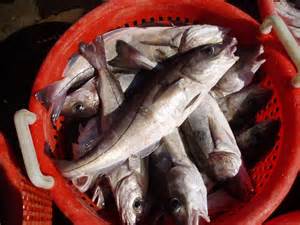 The annual catch limits for Gulf of Maine cod will increase slightly in 2016, while the quota for haddock will more than double if recommendations passed this week by the New England Fishery Management Council are approved by NOAA Fisheries. One year after slashing total cod quotas by more than 75 percent to 386 metric tons, the council voted at its three-day meeting in Portland, Maine, to raise the total cod annual catch limit (ACL) to about 440 metric tons, with 280 metric tons designated for the commercial fishing industry in each of the next three fishing seasons. Read the article here 08:20:38
The annual catch limits for Gulf of Maine cod will increase slightly in 2016, while the quota for haddock will more than double if recommendations passed this week by the New England Fishery Management Council are approved by NOAA Fisheries. One year after slashing total cod quotas by more than 75 percent to 386 metric tons, the council voted at its three-day meeting in Portland, Maine, to raise the total cod annual catch limit (ACL) to about 440 metric tons, with 280 metric tons designated for the commercial fishing industry in each of the next three fishing seasons. Read the article here 08:20:38
Warmer Gulf of Maine clobbering the cod
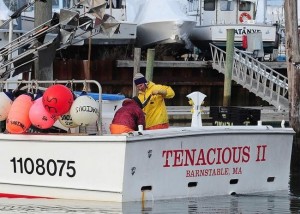 Desperate measures have been taken, cod quotas have been slashed again and again, and yet fish numbers continue to slide. Now, a new study by the Gulf of Maine Research Institute suggest the Gulf’s warming waters have led to the collapse of the fishery and recovery depends “as much on temperature as it does on fishing.”,, But if is the prime culprit, not over zealous fishermen, what more can be done on a local level? Andrew Pershing, “Our work suggests that had temperature been factored in,,,” Read the article here 09:18
Desperate measures have been taken, cod quotas have been slashed again and again, and yet fish numbers continue to slide. Now, a new study by the Gulf of Maine Research Institute suggest the Gulf’s warming waters have led to the collapse of the fishery and recovery depends “as much on temperature as it does on fishing.”,, But if is the prime culprit, not over zealous fishermen, what more can be done on a local level? Andrew Pershing, “Our work suggests that had temperature been factored in,,,” Read the article here 09:18
Gulf warming study based on bad science, stakeholders say
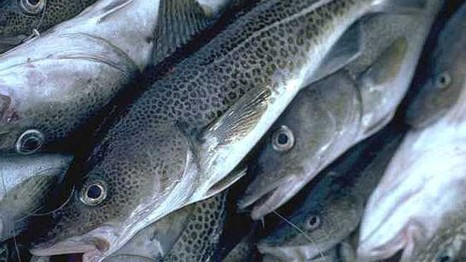 The study, performed by the Gulf of Maine Research Institute and appearing in the journal Science, concluded the Gulf of Maine’s surface water is warming more rapidly than 99.9 percent of the rest of the world’s oceans and that climate change is a contributing factor to the demise of the cod stock. “My first question was whether any part of the study started out to understand the true status of Gulf of Maine cod or if they just assumed that the data from the assessment — which we contend is consistently wrong — is fact,” said Vito Giacalone, policy director for the Gloucester-based Northeast Seafood Coalition. “I was told it was the latter.” Read the rest here 08:39
The study, performed by the Gulf of Maine Research Institute and appearing in the journal Science, concluded the Gulf of Maine’s surface water is warming more rapidly than 99.9 percent of the rest of the world’s oceans and that climate change is a contributing factor to the demise of the cod stock. “My first question was whether any part of the study started out to understand the true status of Gulf of Maine cod or if they just assumed that the data from the assessment — which we contend is consistently wrong — is fact,” said Vito Giacalone, policy director for the Gloucester-based Northeast Seafood Coalition. “I was told it was the latter.” Read the rest here 08:39
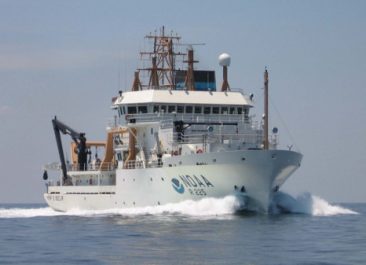
New England Stock Assessments – If it’s the same, it will never be different, Don Cuddy
We are having a serious problem in New England with the performance of the models used in fishery management. To remedy a situation that, along with some other factors, has led to the current crisis in the groundfish industry, we need new data … and maybe we need new models.,, Getting better data is a theme familiar to anyone with connections to the fishing industry in New England. It is central to the mission at the Center for Sustainable Fisheries and was the focus of the forum CSF sponsored at the New Bedford Whaling Museum in May. Read the rest here 09:03
‘Now I’m at half what I’d normally be at.’ Cod restriction’s rip the charter fleet
 It isn’t just the Northeast commercial groundfishing fleet that is struggling under the weight of the more restrictive federal fishing regulations that have completely taken cod off the table in the Gulf of Maine. The tendrils of those new regulations have reached the charter and for-hire fishing operators, who now try to combat both the reality — no cod — and the perception — no other groundfish species is worth the time and expense of a charter trip that have been generated by increasingly restrictive regulations instituted for the 2015 fishing season. Read the rest here 08:50
It isn’t just the Northeast commercial groundfishing fleet that is struggling under the weight of the more restrictive federal fishing regulations that have completely taken cod off the table in the Gulf of Maine. The tendrils of those new regulations have reached the charter and for-hire fishing operators, who now try to combat both the reality — no cod — and the perception — no other groundfish species is worth the time and expense of a charter trip that have been generated by increasingly restrictive regulations instituted for the 2015 fishing season. Read the rest here 08:50
Our view: New fishing limits another blow to the New England fishing industry
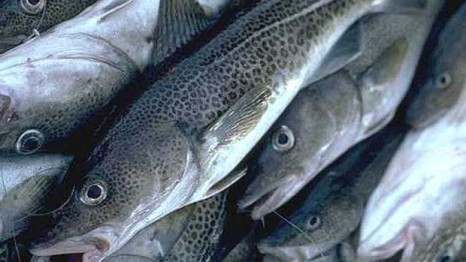 One might think that the lifting of the emergency cod regulations imposed by NOAA last November would bring sighs of relief across the Gloucester waterfront and elsewhere as the new commercial fishing year dawns Friday. But there is little relief and there are no cheers being heard among groundfishermen here and elsewhere across the North Shore and New England. For in lifting a number of the area closures that kept many fishing boats tied to the docks late last year, NOAA and the New England Fishery Management Council have replaced those rules,,, Read the rest here 08:43
One might think that the lifting of the emergency cod regulations imposed by NOAA last November would bring sighs of relief across the Gloucester waterfront and elsewhere as the new commercial fishing year dawns Friday. But there is little relief and there are no cheers being heard among groundfishermen here and elsewhere across the North Shore and New England. For in lifting a number of the area closures that kept many fishing boats tied to the docks late last year, NOAA and the New England Fishery Management Council have replaced those rules,,, Read the rest here 08:43
Editorial: Latest cod limits reiterates need for assessment changes
![]() One might think that the lifting of the emergency cod regulations imposed by NOAA last November would bring sighs of relief across the Gloucester waterfront and elsewhere as the new commercial fishing year dawns this Friday. But there is little relief and there are no cheers being heard among groundfishermen here and elsewhere across the North Shore and New England. “Now the game of make-believe begins,” says Vito Giacalone, “Now it’s all about running away from fish that we know exist, but are not recognized by the assessment. Read the rest here 09:27
One might think that the lifting of the emergency cod regulations imposed by NOAA last November would bring sighs of relief across the Gloucester waterfront and elsewhere as the new commercial fishing year dawns this Friday. But there is little relief and there are no cheers being heard among groundfishermen here and elsewhere across the North Shore and New England. “Now the game of make-believe begins,” says Vito Giacalone, “Now it’s all about running away from fish that we know exist, but are not recognized by the assessment. Read the rest here 09:27
Lean year for New England cod ahead as shutdown looms
 Catch limits set to take effect this week will take a bite out of an industry that dates back to America’s colonial past: New England cod. But Gulf of Maine cod are what fishermen call a “choke species,” as they must also stop fishing for some other species when the cod fishery shuts down. Haddock, pollock and hake — groundfish that, like cod, dwell on the ocean bottom and share space in with it in markets, restaurants and seafood auctions — will also be harder to come by. Read the rest here 15:09
Catch limits set to take effect this week will take a bite out of an industry that dates back to America’s colonial past: New England cod. But Gulf of Maine cod are what fishermen call a “choke species,” as they must also stop fishing for some other species when the cod fishery shuts down. Haddock, pollock and hake — groundfish that, like cod, dwell on the ocean bottom and share space in with it in markets, restaurants and seafood auctions — will also be harder to come by. Read the rest here 15:09
Letter: Fishermen grateful for Congressman Seth Moulton’s efforts
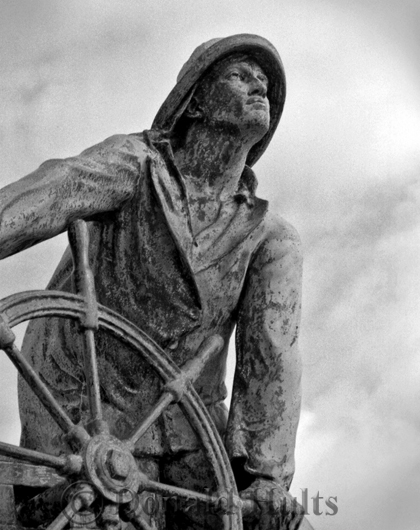 We would like to publicly thank Congressman Seth Moulton for his support for fishing business in Gloucester. During the campaign, Congressman Moulton promised to advocate for sound policies for the fishing industry. In office for less than one month, he has delivered on that promise. Congressman Moulton’s strong and timely support of a sector-based solution offered by the Gloucester Fishing Community Preservation Fund was critical and well received. Ultimately, NOAA agreed to amend the Gulf of Maine cod for the remainder of this fishing year. Read the rest here 09:31
We would like to publicly thank Congressman Seth Moulton for his support for fishing business in Gloucester. During the campaign, Congressman Moulton promised to advocate for sound policies for the fishing industry. In office for less than one month, he has delivered on that promise. Congressman Moulton’s strong and timely support of a sector-based solution offered by the Gloucester Fishing Community Preservation Fund was critical and well received. Ultimately, NOAA agreed to amend the Gulf of Maine cod for the remainder of this fishing year. Read the rest here 09:31
NOAA should extend fishermen’s input to new year’s rules, too
The announcement that  Fisheries has agreed to pull back elements of last November’s emergency Gulf of Maine cod protective measures represents good news on several fronts. Now, it’s important that this cooperation be extended when it comes to setting regulations for the next fishing year, which is due to start May 1 — or in just eight weeks. Read the rest here 07:53
Fisheries has agreed to pull back elements of last November’s emergency Gulf of Maine cod protective measures represents good news on several fronts. Now, it’s important that this cooperation be extended when it comes to setting regulations for the next fishing year, which is due to start May 1 — or in just eight weeks. Read the rest here 07:53
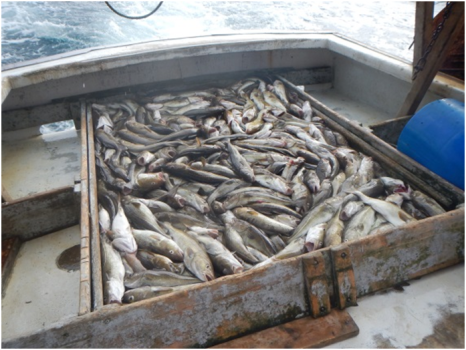
A Tale of two pictures – NOAA and Enviros have it all wrong on Gulf of Maine Cod!
This is a picture of approximately 2000 lbs. of cod. It represents the first time I have targeted cod in two years. While one picture does not determine the status of the stock it is a powerful illustrator of our current assessment shortcomings. This presentation is on Gulf of Maine Cod but the problems it illustrates cut across numerous species. By way of background, this was a one hour research tow in an open area. I travelled 20 miles to make this tow and it represents the first area that had not been taken over by lobster traps. This alone is cause for concern because most of the Gulf of Maine is now defacto closed to commercial fishing and the trawl survey, by the proliferation of fixed gear. The fact is, none of us now know how many cod exist because no one, including the NOAA trawl survey can fish here. Read the rest here, by David Goethel 16:36
Enviros Petition for Immediate and Permanent Rule Making to Prohibit Fishing for Gulf of Maine Cod
Enviros Petition for Immediate and Permanent Rule Making to Prohibit Fishing for Gulf of Maine Cod
 Today’s petition, filed under the Administrative Procedure Act, urges the Fisheries Service to follow the Magnuson-Stevens Fishery Conservation and Management Act requirement to rebuild overfished species. The called for the Fisheries Service to prohibit fishing for Gulf of Maine cod, allowing catch only incidental to other targeted fish, and reduce such bycatch to levels that allow the cod population to rebuild. Read the rest here 13:33
Today’s petition, filed under the Administrative Procedure Act, urges the Fisheries Service to follow the Magnuson-Stevens Fishery Conservation and Management Act requirement to rebuild overfished species. The called for the Fisheries Service to prohibit fishing for Gulf of Maine cod, allowing catch only incidental to other targeted fish, and reduce such bycatch to levels that allow the cod population to rebuild. Read the rest here 13:33
The Great Cod Compromise of 2015: NOAA, fishing industry find rare common ground on cod actions
The industry stakeholders and NOAA/NMFS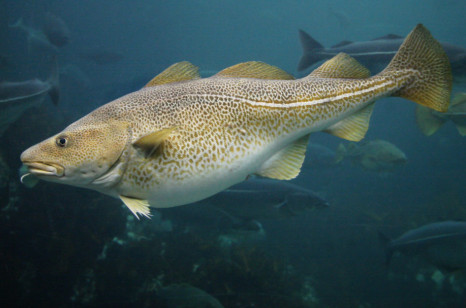 arrived at a compromise: NOAA would eliminate the trip bycatch limit and leave the broad stock areas open, but it only would be able to accept up to 30 metric tons of the surrendered cod allocation and the rolling closures scheduled for March would stay in effect.”We felt like what we came up with addresses two of the major complaints by the fishing industry,” Bullard said. “We think there is a conservation benefit to that and it’s a good proposal.” Read the rest here 15:57
arrived at a compromise: NOAA would eliminate the trip bycatch limit and leave the broad stock areas open, but it only would be able to accept up to 30 metric tons of the surrendered cod allocation and the rolling closures scheduled for March would stay in effect.”We felt like what we came up with addresses two of the major complaints by the fishing industry,” Bullard said. “We think there is a conservation benefit to that and it’s a good proposal.” Read the rest here 15:57






